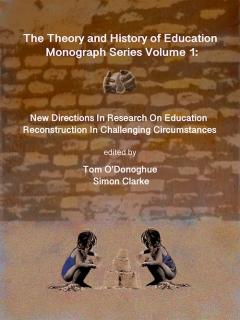New Directions in Research on Education: Reconstruction in Challenging Circumstances
Synopsis
There has been a burgeoning of research on education over the last four decades. This development has been accompanied by a profusion of publications in the form of academic books, chapters, and papers in refereed journals. In their reporting of theoretical and empirical research, there is much that is informative for both generalists and specialists working in the field of education regarding the status quo. Much less prevalent, however, are works that open up broad new areas for deliberation and for research. Those scholars who are exceptions in this regard have provided two types of work. The first of these are works that attempt to open up new research directions within education studies in relation to such matters as education access, participation, pedagogical practices, and outcomes at different education levels (as in primary, secondary and university levels), along with providing expositions on new research approaches.
Much less prominent are works that address a broad range of topics across a broad range of foci. This is understandable since most education research is undertaken from a traditional social science perspective that requires one to engage in empirical inquiry after clearly narrowing down one’s topic and one’s research questions. Yet, works that address a broad range of topics across a broad range of foci are equally valuable for generating streams of consciousness amongst readers, stimulating thought about topical and divergent areas of research, and promoting creative ideas about how to address them.
This book was conceptualised from the latter point of view. It addresses a variety of new directions in research related to education reconstruction in challenging circumstances. While the argument for adopting such an approach is as outlined above, we are also mindful that the exercise should not become one of presenting a set of totally disconnected chapters. Thus, what is offered needs to be seen as being bounded within a broad framework on what constitutes the nature of education studies. Accordingly, the next section of this opening chapter outlines such a framework. Attention then turns to why research conceptualised in relation to it needs to be viewed in terms of the particular context within which it was undertaken. It is important that this point be emphasised at the outset since it is crucial to keep it in mind when considering the chapters offered in the rest of this book.


